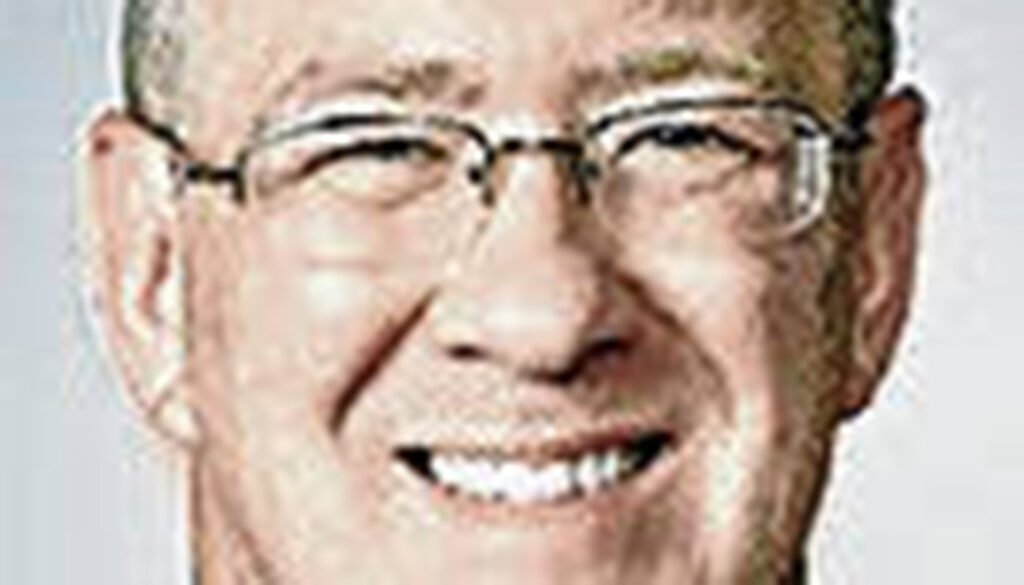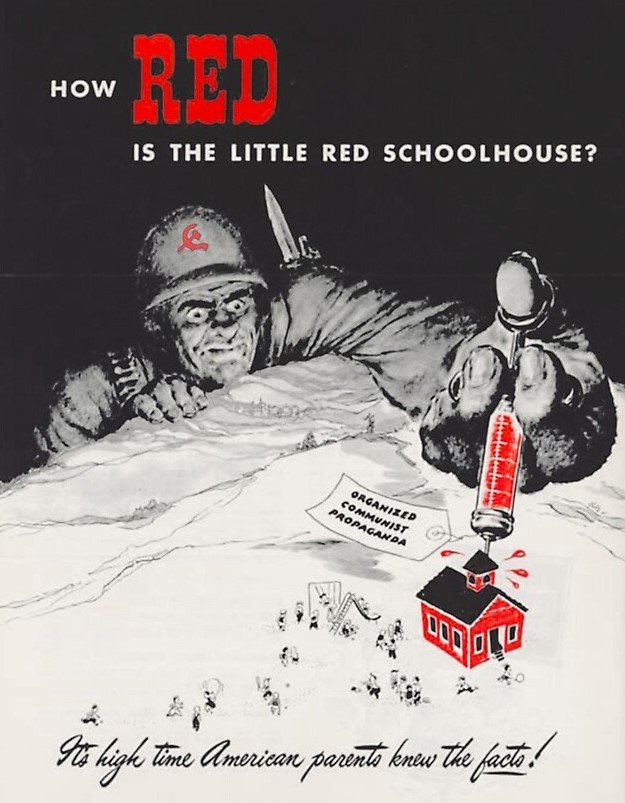
Imagine for a minute here that you’re living in 1917, nearing the tail end of a world war and about to witness life in a disillusioned decade. Beyond the horror stories you’re hearing about injuries and mental diseases from those in combat, you can feel an even bigger sense of dread pervading, and only nostalgia for a time before can provide comfort. Seeking any ideological goalpost you can to keep away from that nervous wreck talking to your subconscious, your zealous mission becomes to attack the threat of socialism. Given the magnitude of this threat you find that Wilsonian propaganda is justified and you think of anything you can say to dismiss their political interests. They’re either softie poets or murderous Bolsheviks. Either “sewer socialists” who care way too much about fighting the utility companies, or nerds who ignore that and won’t shut the fuck up about theory. For years the socialist threat extends so far and wide that you can see it talking to you through flappers, jazz cigars and beer from the bathtub, all of which you would’ve gladly partaken in just five years ago. No contradictions when it’s a red scare! And in the same spirit as that the Muncie Evening News here in town had this to say in response to the bearded commies:
“Conservatism on the one hand, revolutionary radicalism on the other, must inevitably assert themselves as the dominant influence in American politics – and the dividing line inevitably will be between socialism and individualism.”1
In retrospect, the part that’s most apparent is how there isn’t any middle ground to this person’s worldview, and there aren’t varying degrees of how people think but only good me and evil them. Enter Michael Hicks, a Yorktown economist working as Director of BSU’s Center for Business Econ Research. He wrote a piece for the Star Press when Indiana passed SB 202, which even he contends imposes limits on academic freedom. Though he also blames the scrutiny towards college campuses on Critical Theory, which in his mind can mean anything from an Adorno book to your standard college PR practices. In keeping with the patriotic tradition, here is his take on campus radicals:
“The central fight over ideological bias on campus involves two competing visions of the world. One view reflects the founding principles of the Constitution; the second is wholly different and incompatible with the Constitution.2
In the worldview of Hicks, if you have ever read a Post-Democrat article then you likely fall into the latter: wholly different and incompatible with the Constitution. I know I easily fall into being incompatible by his standards, not for being a card carrying communist (and getting on the no-fly list because of it) but given that I think we should teach kids that racism is bad. Past his statement, which definitely does put people into boxes, the astonishing thing about Hicks is his audacity to take his half-baked ideas and act like a middle ground expert. Yet in actuality, Hicks is no different than any red scare hack in recent history.
What Hicks writes gets published in roughly two dozen Indiana papers, but that’s no reason to let the Star Press off the hook. Editorials are limited to individuals who supposedly know their way around words, and in recent years everyone else in the Muncie community has been limited from it. Yes, we are in a period of inactivity where less people are interested in communal affairs, but the few that are interested are usually limited by gatekeepers like our only local newspaper. Despite the fact that we can see the demise of the Star Press from miles away, they have little interest in showing what lively debate looks like.

Some McCarthy-era propaganda that looks like it could be in a Zine.
The motivation for Hicks giving credence to these ideas without going “fully” reactionary is because he’s worried about becoming irrelevant in the nearby future. He does have columns where he criticizes MAGA-chuds and even libertarians, but it doesn’t stop him from falling into a whirlpool of fear-mongering politics that’s not far off from that. Then after patting himself on the back for holding society together with another nuanced column, he moves on to tackle the Israel-Palestine conflict.
It wasn’t until his recent piece, “The good, the bad and the antisemitic ugliness on campus,” that the Post-Democrat was prompted to make this write up happen. One minute he says there are fair critiques on all sides, yet without dwelling into who he thinks the voices of reason are in the Israel-Palestine conflict. Here he just wants his readers to give him credit for merely SAYING it’s complicated, yet he follows this with a complete whiplash of a sentence: “The overall climate of these protests was antisemitic and frankly pro-terrorist.” If you’re going to look into the conflict, you should be aware that the Indiana ACLU, which has a long-standing record of defending free speech, is suing Indiana University for its one-year ban of students. Years prior to where the conflict has stood since Oct. 7th, there have been anti-BDS laws preventing United States businesses from stopping their funds from going to Israeli settlements. This is just on the surface level of a debate that I don’t claim to be well equipped to write Op-Ed’s on (I focus a lot more on local politics), but Hicks decided to explore the matter further in what was featured in dozens of Indiana papers.
Even more aggravating is that he once again brings up Critical Theory, and it’s worth pointing out that the conspiracy theories surrounding Critical Theory are themselves antisemitic. For decades Critical Theory has been repeated with fearmongering about “cultural Marxism” and the Frankfurt School. According to the Southern Poverty Law Center: “the theory posits that a tiny group of Jewish philosophers who fled Germany in the 1930s and set up shop at Columbia University in New York City devised an unorthodox form of ‘Marxism’ that took aim at American society’s culture, rather than its economic system.” It’s hypocrisy on the end of Hicks, who won’t stop regurgitating such talking points without looking into their origins, yet seems to believe that any criticism of the state of Israel can’t be made without it being antisemitic.
There’s also a seemingly out of nowhere comment from Hicks: “The LBGT+ community, which is so active on campus, is largely silent in radical terrorist circles, because they have been murdered.” The clear sentiment is that our community in the U.S. doesn’t care about the Middle East because we’re perceived as over-privileged in the eyes of conservatives like Hicks. It already reads as though he’d disavow a gay child, so I could care less about giving it anymore thought, though after a quick Google search here’s three LGBT human rights organizations I found that do work in the region:
- Helem founded in Lebanon in 2001
- Outright International does work in the Middle East and North Africa
- Damj founded in Tunisia in 2008
Finally, and one I remember vividly that grinded my gears, “Populists are wrong – life is better today.” The crux of the Op-Ed is that both the far-right and the far-left both equally like to glamorize the past, and it once again reveals just how eager he is to simplify the world he inhabits. Mainly it’s his eagerness to make a false equivalency between the two sides. You would be right to say that when conservatives idealize the 1950s, it’s advocating for human rights abuses and strict patriarchy. But when you had thousands of these MAGA supporters willing to overthrow the government, there isn’t a left-wing movement in this country to even compare it to. As for what it is that the left does to idealize the past, it’s how we talk about when the economy was better. Although while I would bring up how the wealthiest were taxed upwards of 90% when Eisenhower was president, or when unions were strong, Hicks can only bring up how it was more dangerous to drive a car.
The person I could best come up with who is an arbiter of left-wing populism is Thomas Frank (you can watch him eviscerate Bill Maher here), and at no point at all does he claim that the ’50s were nothing but jolly good. What us on the left do believe is that there was a better social safety net and an emphasis on security and democracy in the New Deal period. I can make that claim without it being discounted by worse cancer treatment, lower lifespans, and a lack of seatbelts in cars. Besides the non sequitur arguments, the whole piece reads like he just heard the term populism said in a sentence and started making far-reaching connections that no one else is making. His definition of populism to begin with is ahistorical, and just as elitist as the detractors of it in the 1890s.
Candidly, in any given time in our local news I absolutely would have had a problem with the highly conservative nature of our opinion writers. But even in those heightened red scare days we joke about, at least we had writers who could attempt to be decent orators and had the ability to finish a sentence. Hicks likes to end some of his columns on a strange notes, so I’m gonna do the same here: I was at a city council meeting a few months ago and I remember seeing Star Press writer David Penticuff staring right at me from across the room. The first thing I thought was that he looked like he saw a ghost. But thinking about it over again, it’s as if I looked directly at him, away from my notepad, and sternly told him “the future is now, old man.”
Notes
1. Critchlow, Donald T. Socialism in the Heartland: The Midwestern Experience, 1900-1925. Notre Dame, Ind: University of Notre Dame Press, 1986. Print. pg. 46.
2. https://www.thestarpress.com/story/opinion/columnists/2024/02/25/hicks-sb202-offers-the-wrong-solutions-to-a-real-problem/72716847007/